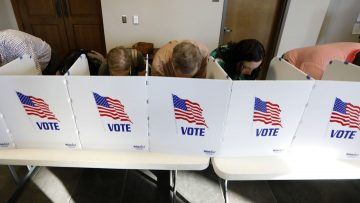Derek Thompson in The Atlantic:

The 2020 election will be unprecedented, no matter what. Either President Donald Trump’s victory will shatter expectations and academic theories, or his defeat will. If Trump wins in 2020, he will be the first and only impeached president to win reelection. Barring a major change in national polls, he will also be the first president to be elected twice without once winning the popular vote. And if he loses? It would mark “the greatest presidential fumble of economic and market tailwinds in modern history,” according to Michael Cembalest of J.P. Morgan. A traditional formula for predicting modern presidential elections goes like this: The national economy determines the national vote. Strong economies have historically favored the incumbent candidate or party. Weak economies, or even brief dips, have helped the challenge.
…As for 2020, unemployment is at its lowest point in more than 60 years. The S&P 500 has tripled in the past decade. Wage growth, while still somewhat disappointing, is rising fastest for full-time low-income workers. In a vacuum, this would augur a reelection landslide for the sitting president. According to Cembalest’s index of economic strength—combining data on unemployment levels, home prices, per capita GDP, stock-market growth, and inflation—“Trump as an incumbent benefits from the strongest tailwinds” since 1896. (Bill Clinton’s reelection year of 1996 comes close, but unemployment and inflation were higher, and home values and the stock market were only on the cusp of their late-’90s boom.)
But Trump isn’t the only force of unprecedented-ness. If he loses to the current front-runner, Joe Biden will violate another soft law of American politics: the Rule of 14. As Jonathan Rauch wrote in The Atlantic: “No one gets elected president who needs longer than 14 years to get from his or her first gubernatorial or Senate victory to either the presidency or the vice presidency.” Zero political experience is just fine with Americans. But too much is not.
More here.
